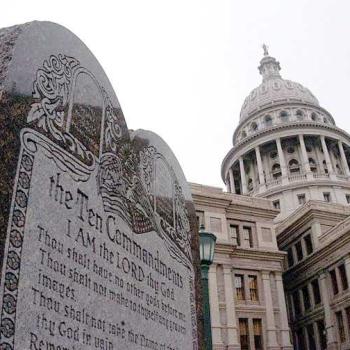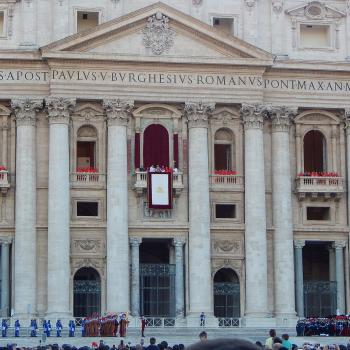In an adventurous world, we are always on a vision quest into personally uncharted territories. I recall spending the summer of our son's twelfth year, reading stories and seeing movies about "coming of age" from the Lord of the Rings to Chariots of Fire. At sixteen, we took a several day road trip from Washington D.C. to the Basketball Hall of Fame in Springfield, Massachusetts, and then Newport and the Atlantic Coast. It was a time of both silent and verbal bonding between father and son.
Adolescents should be invited in this time of "moratorium" and "identity crisis" to celebrate the questions. Teens have a spiritual life, even if it is perceived in terms of rebellion by their elders. Perhaps the church can institute celebrations of questioning. It is also clear that adolescents today are caught up in a constantly swirling world in which busyness is the norm. Times of silence can be integrated into adolescent spiritual formation. Rituals of silence awaken teens to the wisdom that integrates the many voices of life.
In young adulthood, we begin to ponder our vocations. Beyond graduation parties, communities of faith can provide vocational vision quests and the blessings of a young person's first job. As the Benedictine tradition affirms, all work can be holy when done in awareness of God's presence. If God is present in every moment of life, then every task can be a window into divinity, an epiphany in which we discover, like Jacob, that God is here, and now we know it!
Celebrations of holy relatedness and family are at the heart of young adulthood. While weddings are primarily social occasions today, there is good reason to celebrate holy unions of all types as an opportunity to move toward holy house-holding and procreation. Birth and domestic life are sacred and should be celebrated not just with baptisms but with rituals of parenting. (From a progressive perspective, all holy relationships are celebrated -- heterosexual, GLBT, single parenting, etc.)
God's holy adventure continues in midlife: whether in congregational or domestic life, the various passages of life need celebration, whether they involve vocational achievements, children leaving home, or exploring new options. Spiritual formation is essential in midlife, especially since the midlife crisis is ultimately a spiritual issue. Decision means "to cut off" and the roads we have not taken have led both to limits and losses and opportunities and adventures.
Spiritual formation, embodied in both rituals and practices, is especially important for those in the "sandwich generation." As complicated as "sandwich generation" life may be -- and I can attest to this as the parent of a 29-year-old cancer survivor, the caregiver of a mentally ill brother, and the domestic companion of my 92-year-old mother-in-law who shares a home with us -- this is a time for celebrating love and commitment. We grow in stature as a result of our commitments to family and strangers. Perhaps we need rituals for the "sandwich generation," aimed at giving peace and strength for the journey.
In the Hindu tradition, the vocation of elders is to live a life of holiness. As "forest dwellers," the goal is to find union with the ultimate reality. In Madeleine L'Engle's A Ring of Endless Light, Grandpa Austin tells his granddaughter Vicky, "My vocation is now simply to pray."
Rituals of moving forth are appropriate at "retirement" and at each decade (70, 80, 90, 100) to affirm the wonder of life. While some may lament their lack of productivity and grieve over what they can no longer do, celebrations awaken the community -- and individuals -- to God's care and calling as elders. People can be initiated as spiritual elders whose calling is to pray and lead the community by their faith, sharing their wisdom with younger generations. Though our bodies may diminish, our spirits can soar!
At every stage of life, rituals of forgiveness are a necessity: over a lifetime, confession of what we have done and omitted is an essential part of the healing process.
While we progressives can't claim to know the "furniture of heaven," we can celebrate the adventures of a life well-lived. Rituals of transition and transformation restore our trust and awaken us to further adventures even in our loss and the hope that our loved ones will venture forth in companionship with the Holy Adventure in whom all things live and move and have their being.





